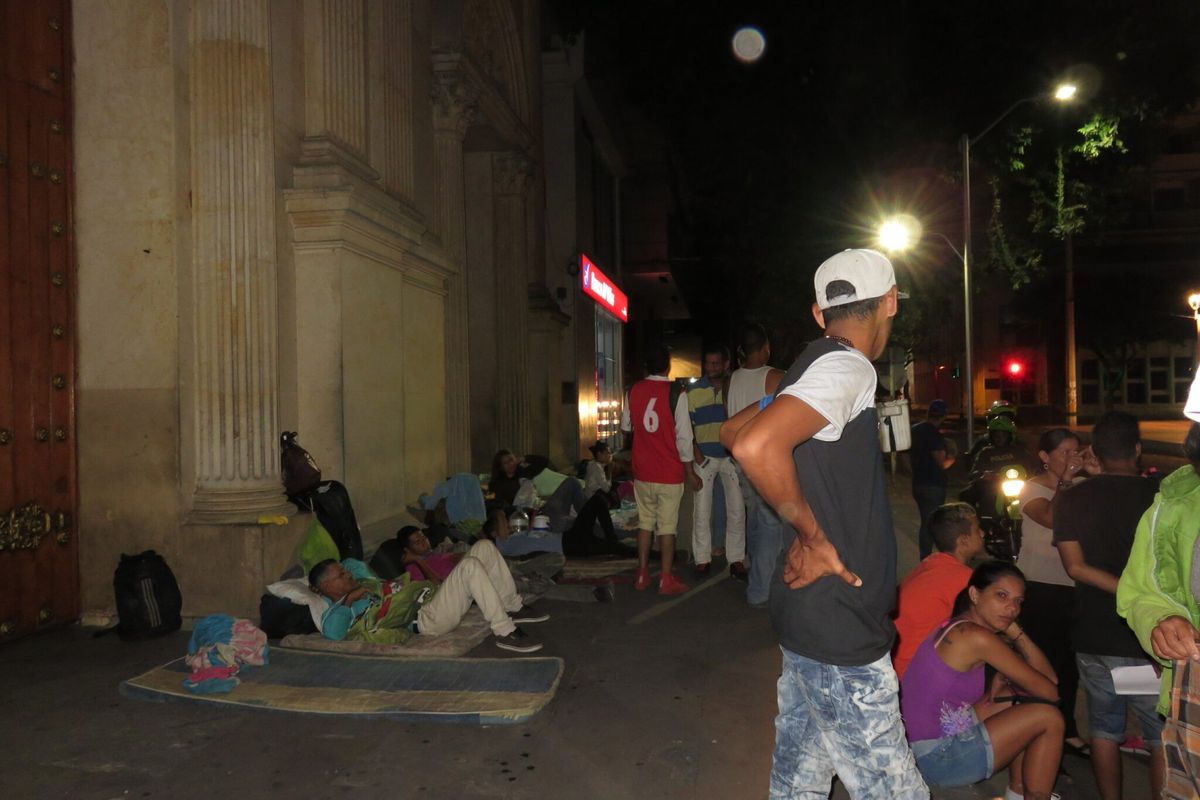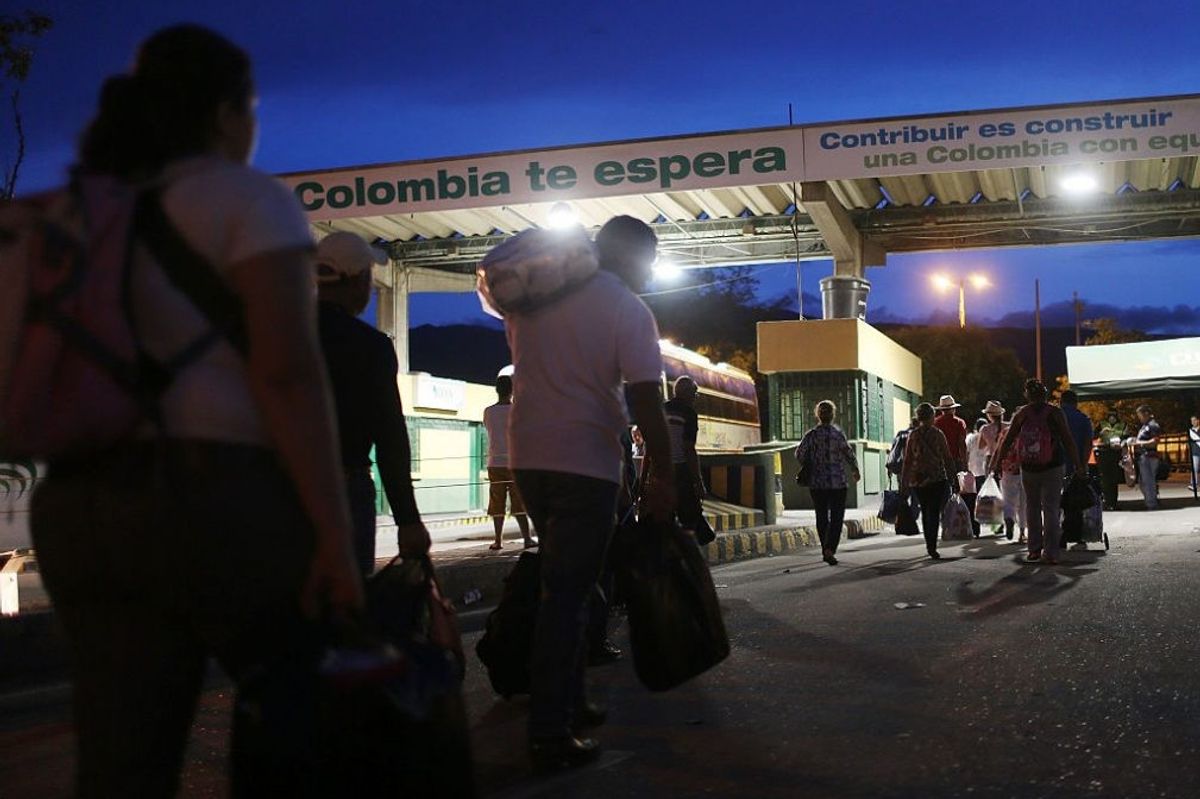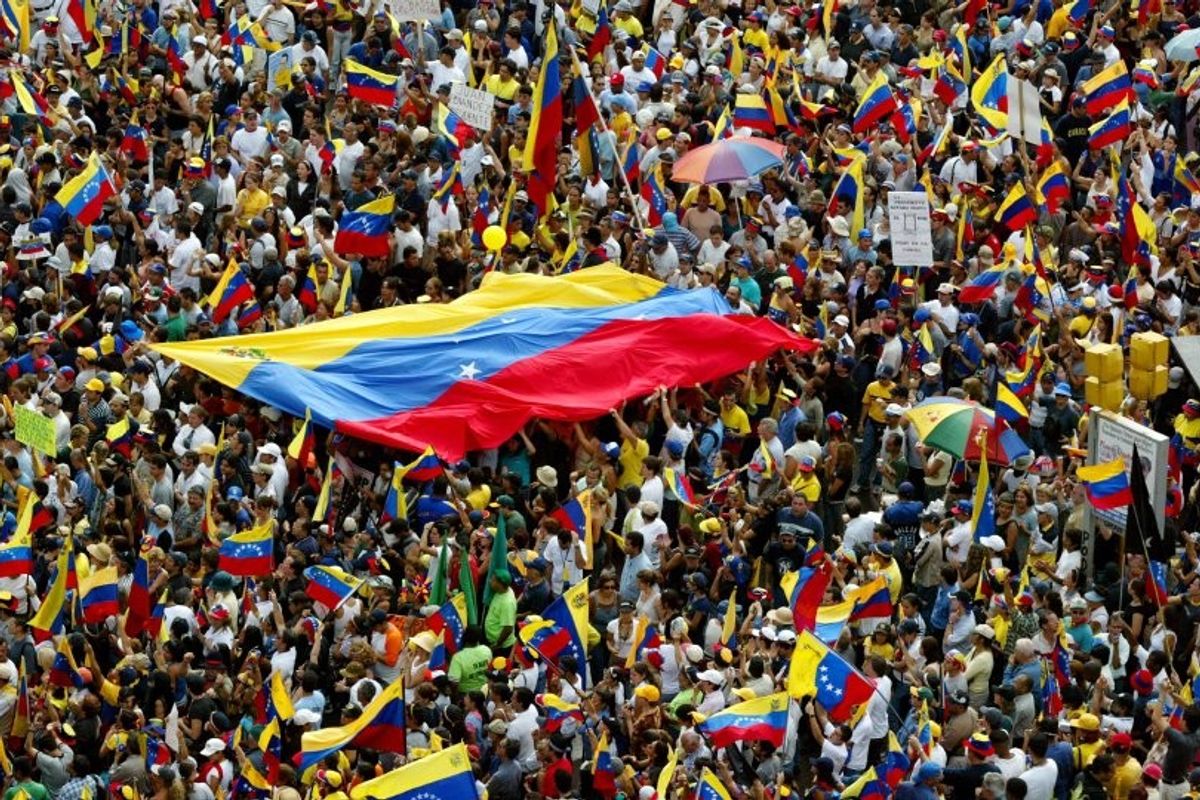After the surprising results of the Colombian peace referendum on Sunday night, both the government of Colombia and the FARC must try again to reach a deal to end the 52-year war in their country. The Cipher Brief spoke with Andrea Saldarriaga Jiménez, a researcher at the Atlantic Council’s Adrienne Arsht Latin America Center, about the results of the peace deal. In her analysis, Colombian President Santos must convince his people that “there will never be a perfect peace agreement” but “an imperfect peace is better than prolonging a costly war.”
The Cipher Brief: Why did “no” win in Colombia?
Andrea Saldarriaga Jiménez: With the tight margin of just 0.43 percent, the vote shows how polarized the country is. The “no” win shows that many Colombians were not able to accept that the FARC would have direct government representation in Congress or that FARC fighters would only go to jail under very limited circumstances.
It also shows the strength that former President Alvaro Uribe still has, and that unfortunately fighting “against something” usually brings people closer together than fighting “for something.”
The results also show that town and municipalities most affected by the conflict voted “yes.” Bojayá, a municipality that lived through one of the most terrible massacres of the country, voted 98 percent yes. This shows that victims have forgiven. This is an example to the country of where we should be headed as a society.
What happens next is uncertain. President Juan Manuel Santos has accepted the vote and called for a meeting with all the “No” vote leaders this morning. Unfortunately, the Centro Democrático party led by Uribe declined the invitation. Some political sectors are calling for a Constituent Assembly. The High Commissioner for Peace flew back to Havana and Humberto De La Calle, Head negotiator for the government, offered his resignation.
The President’s ability to lead the country at this uncertain time, to bring all the political sectors together to build on what has already been agreed, rather than destroy the progress of the past four years, will determine whether Colombia can achieve peace - and move forward after this step backward. Finally, this is an opportunity to include voices that were not heard in Havana, without forgetting that the victims must still be at the center of the negotiations and the agreement.
TCB: What does ‘re-integration’ of FARC members mean in practical terms? Will ‘re-integration’ work?
ASJ: The agreements reached in Havana outlined a six-month timetable for FARC members to concentrate in designated areas of the country, hand over their arms to the UN mission in Colombia, and begin a reintegration process through a new national reincorporation agency created with the agreements. In these areas, they would perform community service as a punishment for crimes committed. The agency would also support FARC members’ reintegration, giving them a monthly stipend and guidance on how to become productive members of society (getting a job, creating a business, etc.) This is similar to what was done by the National Agency for Reintegration during the demobilization of paramilitaries in 2005, meaning precedent existed for this to work. The recidivism rate is only 24 percent for the people that went through this process, compared to 70 percent for those that go to jail. However, yesterday’s vote puts this process on hold.
TCB: Is it possible for the FARC to ever transform into a proper political party? What will this take?
ASJ: The main goal of any peace agreement is to disarm combatants and incorporate them into the political sphere, so that they don’t feel the need to take up arms to make themselves heard. One of the key aspects of the peace accords was the transformation of the FARC into a political party. They would be guaranteed 10 seats in Congress starting in 2018, 5 in the Senate and 5 in the House. The new FARC political movement would also receive an annual budget similar to the one given to current political parties, and would be granted radio time to share their political views.
Colombia has previous experience with this. The 1986 negotiations with the government of former President Belisario Betancur and the 1991 constituent assembly transformed guerilla movements into political parties. However, many members of the main party that emerged (Unión Patriótica) were killed in the following years. This is why the current peace agreement with FARC includes provisions to protect the FARC leaders once transformed into political actors. This point, and direct FARC political participation were the opposition’s main criticisms of the agreements. They steadfastly reject FARC leaders serving in Congress without spending time in jail for atrocities committed.
Presumably, this will now have to be renegotiated. Whether this is possible is now the question since FARC leaders had promised their troops they would not go to jail.
TCB: Other armed groups, like the National Liberation Army (ELN), remain in operation in Colombia. Are they involved at all with this peace process? If no, what does that mean? Is ‘peace’ a realistic future for Colombia?
ASJ: The ELN has repeatedly declared their willingness to start a peace process. In fact, they are currently engaged in exploratory talks with the government. However, ELN and FARC are very different organizations, created for different purposes and inspired by different historical developments. Given this, it is hard to negotiate with both groups at the same table.
With the current plebiscite results, it will be even harder for the ELN to trust that the Colombian people will accept their reincorporation into society.
But despite all these hurdles, peace is still possible for Colombia. This is yet another setback. Advocating for peace is never an easy task, but today it is time for peacebuilders to stay united and support the new possible phase of negotiations.
TCB: Many thought this would be the end of era in Latin America – what is the outlook for peace in the region as a whole?
ASJ: If you had asked me this question a few days ago I would have said “yes, this is the end of an era for Latin America.” Today, however, I don’t think Colombian society is ready yet to forgive and incorporate FARC members into civilian life. Or at least not under the terms negotiated so far in Havana.
What people need to consider is that there will never be a perfect peace agreement. War is messy and peace is as well. But an imperfect peace is better than prolonging a costly war. We will see now where President Santos leads the negotiations, and whether he will manage to unify and incorporate the dissident voices into the peace talks. Hopefully he will do that quickly.
We can’t forget that this negotiation has two sides - we don’t know for how long FARC leaders will be able to maintain the chain of command with their fronts. There is a risk that FARC hierarchy suffers from this setback. Therefore, it is important to bring a political coalition together quickly and re-ignite the dialogues in Havana as soon as possible.
TCB: How has the U.S. been involved in this process/ will continue to be involved going forward?
ASJ: The U.S. has played an important role supporting the peace negotiations in Havana. President Obama named Bernard Aronson as Special Envoy for the Colombian Peace Process in February of last year and he has played a critical role in Havana.
President Obama also announced Peace Colombia during President Santos’ visit to Washington earlier this year to support Colombia in the post-conflict era. The U.S., together with Norway, also brought countries together during the most recent UN assembly to collect funds for the demining process in Colombia. U.S. support has been unwavering and it will continue to be that way following the win of the “No” vote.
Colombia is an important regional ally for the U.S., so there is no reason to step back at this worrying, but also important, moment for the country. This is the time not only for the U.S., but also for the international community to back President Santos, to accept the results of the vote, but also to be even more instrumental in helping Colombia to achieve peace.










